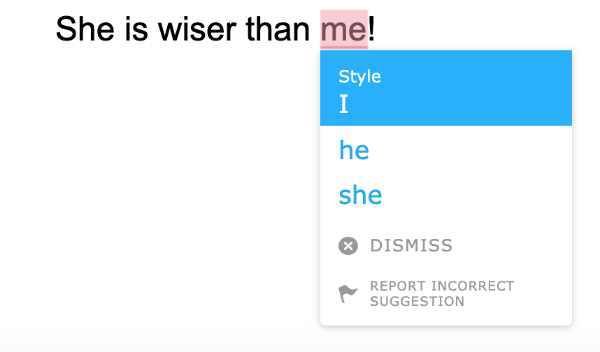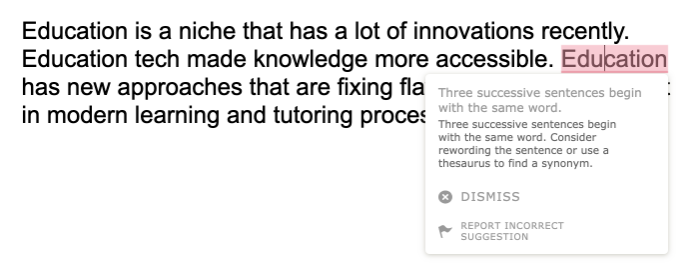How to improve writing style in English: 5 tips

When writing texts in any language, it is important not only to avoid grammatical and syntactic errors, but also to follow the style of presentation in general. Readers instantly see when the text is well written.
I came across an interesting material with five tips that are designed to help quickly improve the writing style. Here is his somewhat abbreviated and optimized version.
')
1. Do not get used to the use of coordinating alliances at the beginning of a sentence.
One of the main holivars in the field of English stylistics is the perennial argument about whether or not to begin a sentence with the so-called coordinating unions (coordinating conjunctions). Simply put, with words like And or But. Many have heard that it is strictly prohibited, “carriers do not do this,” and so on.
In fact, there is no mistake in starting a sentence with such a word. Everything will be correct here. However, experience suggests that such a beginning may be too simple and therefore seductive. As a result, a person can get used to starting sentences like this all the time, and this is not very good in terms of style.
Use them should be to the point. Here is an example of such an application of coordinating alliances at the beginning of a sentence:
Mary prepared her essay on time. But it was forgotten by accident.
If these two sentences are combined into one, then the pause will disappear, the voltage of the moment will decrease:
Mary prepared by accident.
That's when the use of coordinating alliances at the beginning of a sentence can be in place.
2. Understand the subject pronouns
The subject pronoun in English is a pronoun that can act as a subject in a sentence, that is, assume the role that the noun usually plays. And the subject, as we know, is the person or object that in the sentence performs the action described by the verb.
At first glance, everything seems not so difficult, but in practice there are a number of errors that are associated with the use of subject pronouns. One of the most common is the use of the object form where the subject is needed.
Example:
She is wiser than me!
The subject form of pronouns is the words I, he, she, we and they. They are usually used as subjects for the predicate. In this case, I need to use:

3. Never (almost) start a sentence with a number.
Everything is simple here - the number at the beginning of the sentence does not look very nice, although there is no officially recognized error here. It would be better to rephrase the sentence so that the number was not at the beginning, or just to write it in words.
Examples:
Bad : 12 people were injured.
Good : Twelve people were injured.
The second version looks purely better. However, following this advice in 100% of cases is impossible. If you have - it happens in scientific papers - the number with the decimal part got to the beginning of the sentence, then if you write it in words, everything will only get worse.
Examples:
Good : 51.45% of the marketing campaigns for a year.
Bad : Fifty-one point forty-one percent of the year.
The second version looks frankly awful, so it's best to just leave everything as it is, with the usual number.
4. The main feature of a good style is the read text.
Very often it happens that having caught a muse by the tail, the author quickly begins to throw text. And in such a situation it is extremely important not to forget about the importance of reading the material.
After the text is written, it is necessary to re-read it with a cool head. In 100% of cases, you will find both errors and missing punctuation marks, and you will notice stylistic points that need to be improved. One of these moments is the repetition of words at the beginning of a sentence.

5. Get rid of redundancy.
Redundant expressions (redundancies) pollute the text, make it difficult to read, and sometimes create the impression that the author does not fully understand the topic.
There are several types of redundant phrases:
- Adjectives with the same meaning as the word they describe
- Adverbs repeating the meaning of the verb
- A group of words with identical meanings.
In general, you can notice redundancy in a sentence like this: ask yourself if there are two or more words in it with a similar or identical meaning. If there are such words, try to mentally leave only one of them - if the meaning of the phrase is not lost, we have redundancy.
Examples:
Bad : Employees were delivering their best results to approximately 12 working days per month.
In this case, the words “approximately” and “about” mean “exemplary” calculations, so that you can leave only one of these words.
Good : Employees were delivering their best results approximately 12 working days per month.
What do you think about the tips? Are there any other ways to quickly pump up the writing style in English?
Source: https://habr.com/ru/post/447490/
All Articles